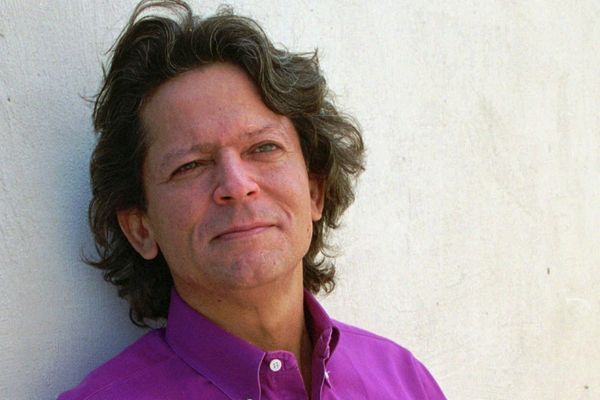In the end, just a handful of people decisively thwarted former President Donald Trump's maneuvering to subvert the 2020 election.
The pivotal pushback by a core few players willing to defy Trump is emerging as a central theme of the Jan. 6 select committee's case in its first four public hearings — without those people, the panel clearly believes, the former president would have achieved his goal of overturning Joe Biden's victory.
Committee members have unspooled a case that Trump sought to corrupt state legislatures, the Justice Department and Congress in his quest to remain in power, and then sat by as a mob tried to do what his allies in government wouldn’t. And at every juncture in that complex effort, the actions of a single person or small group staved off even greater catastrophe.
“The system held, but barely,” Rep. Adam Schiff (D-Calif.) said at the select committee’s Tuesday hearing. “And the question remains, will it hold again?”
Here’s a look at the flashpoints and resistant government officials the committee has identified:
Pence and Jacob
Nearly every component of Trump’s plan revolved around then-Vice President Mike Pence succumbing to pressure. In Trump's view, Pence — who presided over the counting of state electors on Jan. 6, 2021 — could single-handedly reject Biden’s electors or postpone the count altogether and let GOP state legislatures approve pro-Trump electors instead.
Pence, relying on the advice of his counsel Greg Jacob, balked at Trump’s strategy. Jacob and other White House lawyers repeatedly told Trump the scheme was illegal.
Even that could've gone differently. Jacob has also made clear that there was one scenario in which Pence might have been obligated to flip the outcome: if any state legislatures had actually pulled the trigger and adopted Trump electors. In that scenario — where a state legislature and governor have certified competing slates, with one saying Biden won and the other declaring the state for Trump — Jacob said it would be reasonable to defer to the text of the Constitution, which gives state legislatures the ultimate power to choose electors.
“A reasonable argument might further be made that when resolving a dispute between competing electoral slates … the Constitution places a firm thumb on the scale on the side of the State legislature,” Jacob wrote.
That’s why John Eastman, an attorney who designed much of Trump's plans to stay in power, spent the final hours before the riot on Jan. 6 pushing Pence to delay — contending that Pennsylvania’s legislature appeared on the verge of reconvening to appoint Trump electors. Had Pence or Jacob agreed to a delay — particularly as the Capitol recovered — Trump, Eastman and lawyer Rudy Giuliani intended to use the time to bring legislatures back into season.
Raffensperger's refusal
Georgia Secretary of State Brad Raffensperger had his own Trump pressure campaign to deal with when the former president asked him to “find” enough votes to tip the election in his favor in a call on Jan. 2, 2021. Before that now-infamous exchange, then-White House chief of staff Mark Meadows texted and called Raffensperger’s office about 18 times. Raffensperger declined the president’s request and has since been a vocal defender of Georgia's election results, along with his top deputy, Gabriel Sterling.
"What I knew is that we didn’t have any votes to find." Raffensperger recalled at the Jan. 6 panel hearing Tuesday.
Trump’s request to Raffensperger ultimately was tied to his Pence strategy. Had Raffensperger or other election officials acquiesced, it would have created a pretense for Georgia’s legislature to appoint new electors and send them to Washington for Pence to consider on Jan. 6.
“Democratic institutions aren’t abstractions or ideas. They’re local officials who oversee elections. Secretaries of state. People in whom we’ve placed our trust that they’ll carry out their duties,” panel chair Bennie Thompson (D-Miss.) said Tuesday.
The DOJ mass resignation threat
After former Attorney General William Barr resigned, his successor Jeff Rosen found himself in Trump’s crosshairs. As Trump sought to use the levers of government to legitimize his claims of election fraud, he began elevating a little known Justice Department official named Jeffrey Clark, who was willing to support those theories. Clark started pushing for DOJ to issue letters to multiple states where Biden won, which would have encouraged officials to reconvene their legislatures and consider whether to exercise their power to appoint new electors.
Clark first sought support from Rosen and his deputy, Richard Donoghue. But Donoghue balked: “There’s no chance I would sign this letter or anything remotely like this.”
As Trump came closer to elevating Clark to lead DOJ, the leadership of the department — Rosen, Donoghue and Office of Legal Counsel chief Steven Engel — as well as White House Counsel Pat Cipollone, threatened to resign. They warned that many U.S. attorneys would follow suit. Ultimately, Trump backed off the shakeup and turned his attention to other avenues.
The committee is slated to focus on that at the Thursday hearing, where Engel, Donoghue and Rosen are expected to testify in person. Had Clark taken the reins of the department, Trump’s DOJ leaders anticipated that he would issue those letters and take other steps in support of Trump’s cause.
West Wing intervention
As Trump considered his last-ditch options to remain in power, he began listening to a set of outside advisers pushing radical proposals — such as using the military to seize voting machines and appointing a roving special counsel to investigate election fraud.
The select committee foreshadowed their plans to reveal evidence that Trump met alone with some of those advisers, including former national security adviser Michael Flynn and attorney Sidney Powell, in the White House on Dec. 18, 2020.
“White House lawyers and other staff discovered the group was there and rushed to intervene,” panel Vice Chair Liz Cheney (R-Wyo.) said at their June 9 opening hearing.
The committee has also obtained a draft of a potential executive order to seize voting machines, as POLITICO has previously reported. It’s unclear whether Trump ever saw or considered the draft, but it was in keeping with the proposals discussed at the Dec. 18 meeting.
Goodman's diversion
Minutes after rioters breached the Capitol, a different sort of action potentially prevented a more catastrophic and violent outcome. Capitol Police officer Eugene Goodman found himself face-to-face with the first wave of rioters, who had entered the Senate wing — with Pence still cloistered in an antechamber off the chamber floor.
Goodman used a series of quick maneuvers to slow the advance of the mob up the Senate stairwells and ultimately directed them toward a line of officers guarding the chamber, away from senators still seeking a safe exit.
If not for the actions of Goodman and other officers, Pence, lawmakers and staff could have been harmed by the mob. Panel member Rep. Pete Aguilar (D-Calif.), citing a recent court filing, said one of the FBI’s confidential informants was told the Proud Boys “would have killed Mike Pence if given a chance.”
While Goodman staved off the mob, helping facilitate Pence’s escape to an underground loading dock, the select committee reconstructed evidence showing that the vice president’s escape route still came within a mere 40 feet of the rioters.







